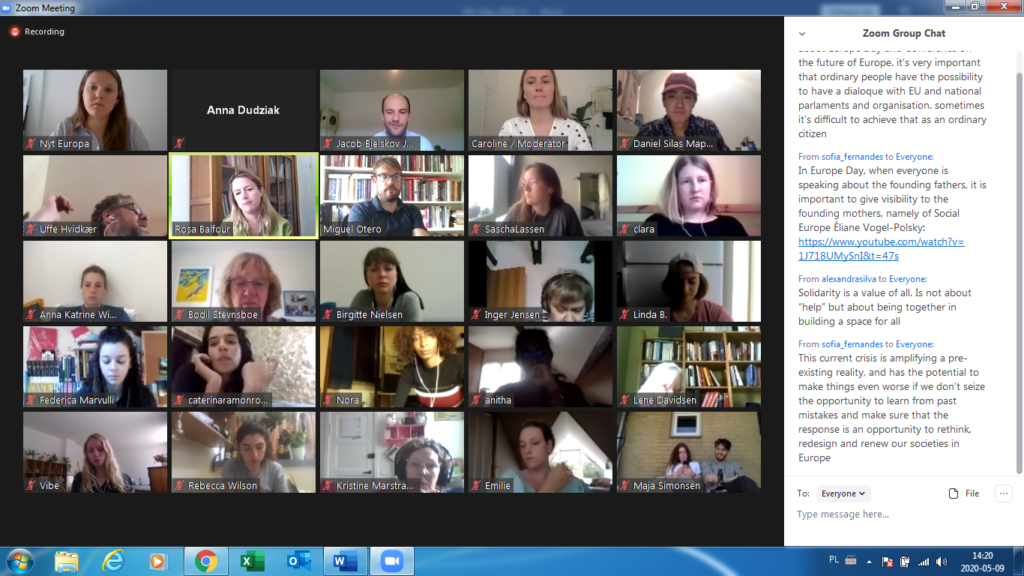In the light of Corona Crisis we have in few months gone through a global society crisis. The crisis has awakened a global collective anxiety and has resulted in many questions about society that are now more relevant than ever. How does the crisis influence globalization? Is it working against or with globalization? What happens with Europe? What is not happening with Europe? Is the crisis in favor of the nation state or the European community?
On Europe day the 9th of May, Nyt Europa invites citizens to a debate about the corona crisis and its influence on European identity. Which repercussions should we expect or fear will be due to the closing of European borders? Will the nation states cut themselves off from each other in the future or conversely be more aware and positive about European common solutions? What should we interpret after the criticism of the EU and its handling of the situation, the internal European conflicts like Hungary who neglects European values, or the economic disunity on euro-obligations? To put it differently, will the crisis confirm a missing European teamwork or speed the process towards more visible European common values?
To discuss these questions, we have invited two Europeans and experts:
Rosa Balfour is the director of Carnegie Europe. Her fields of expertise include European politics, institutions, and foreign and security policy. Her current research focuses on the relationship between domestic politics and Europe’s global role.
Miguel Otero-Iglesias is Senior Analyst at the Elcano Royal Institute and Professor at IE School of Global and Public Affairs. Otero-Iglesias originates from both Spain and Switzerland and has if any felt the division; for what do you do when you feel like a Southern European, but think like a Northern European?
Caroline Tranberg, editor and journalist at Altinget and Spektrum.

